Dalmatian Prosciutto Production Could be Threatened by Lack of Bura Winds
January the 14th, 2023 - Dalmatian prosciutto production could well be threatened by higher than normal temperatures and a lack of bura wind, with more and more producers across the Dalmatian hinterland turning towards controlled, artificial methods instead of traditional smokehouses.
As Poslovni Dnevnik writes, due to the unusually high temperatures that unfortunately caused spoilage, a lot of prosciutto was thrown away en masse in the Dalmatian hinterland during the month of December. The first bura winds to arrive finally created some more suitable conditions for Dalmatian prosciutto production, without which it is difficult to imagine any celebration for very many Croats, Dnevnik.hr writes.
An abnormally warm December led to many of those engaged in Dalmatian prosciutto production to simply throw away part of the meat they had already prepared for drying. Salting the prosciutto is done at temperatures of two to eight degrees, otherwise a lot of spoilage occurs. Instead of December, more favourable temperatures for the proper preparation of one of Croatia's favourite delicacies arrived in the hinterland of Dalmatia only with the first bura winds of this winter season.
Because of this lack of reliability, unfortunately more and more manufacturers are having to turn away from traditional methods of preparation and production, replacing their smokehouses with plants which can guarantee controlled conditions, and which are co-financed by the European Union (EU).
"We all work more or less in a traditional way. It's just that we are a little better technically equipped. With these technical possibilities, we have reduced the risks that can arise when unusual weather conditions cause us issues. There can be a little more fat on the meat, or a little less, as far as taste and smell are concerned, there are thankfully no deviations,'' concluded Mijo Zizic from Brstanovo.
For more, make sure to check out our dedicated news section.
Poreč Hosts Seven Days of Protected Croatian Prosciutto!
June 10th, 2021 - An exhibition and sales event on the Poreč waterfront, a new champion, awards ceremony, professional workshops, and the largest number of protected Croatian prosciutto producers yet - the largest event dedicated to the famous delicacy has been announced!
We will find out soon who has the best prosciutto in Croatia this year. If you are a fan of this delicacy and beautiful Istria, book June 18th and 19th because this year Poreč is the host of the largest event dedicated to protected Croatian prosciutto. There are already four areas with EU protection - Krk, Drniš, and Dalmatia with the protected geographical origin, and Istrian with protected original origin. One of them will take the championship title.
Istrians and their guests will be able to taste the best prosciutto on the second day of the event, June 19, on the Poreč waterfront. From 8 am to 5 pm, producers will sell all four protected prosciuttos at promotional prices. They will be joined by producers of cheese and IQ Malvasia and Teran organized by Vinistra.
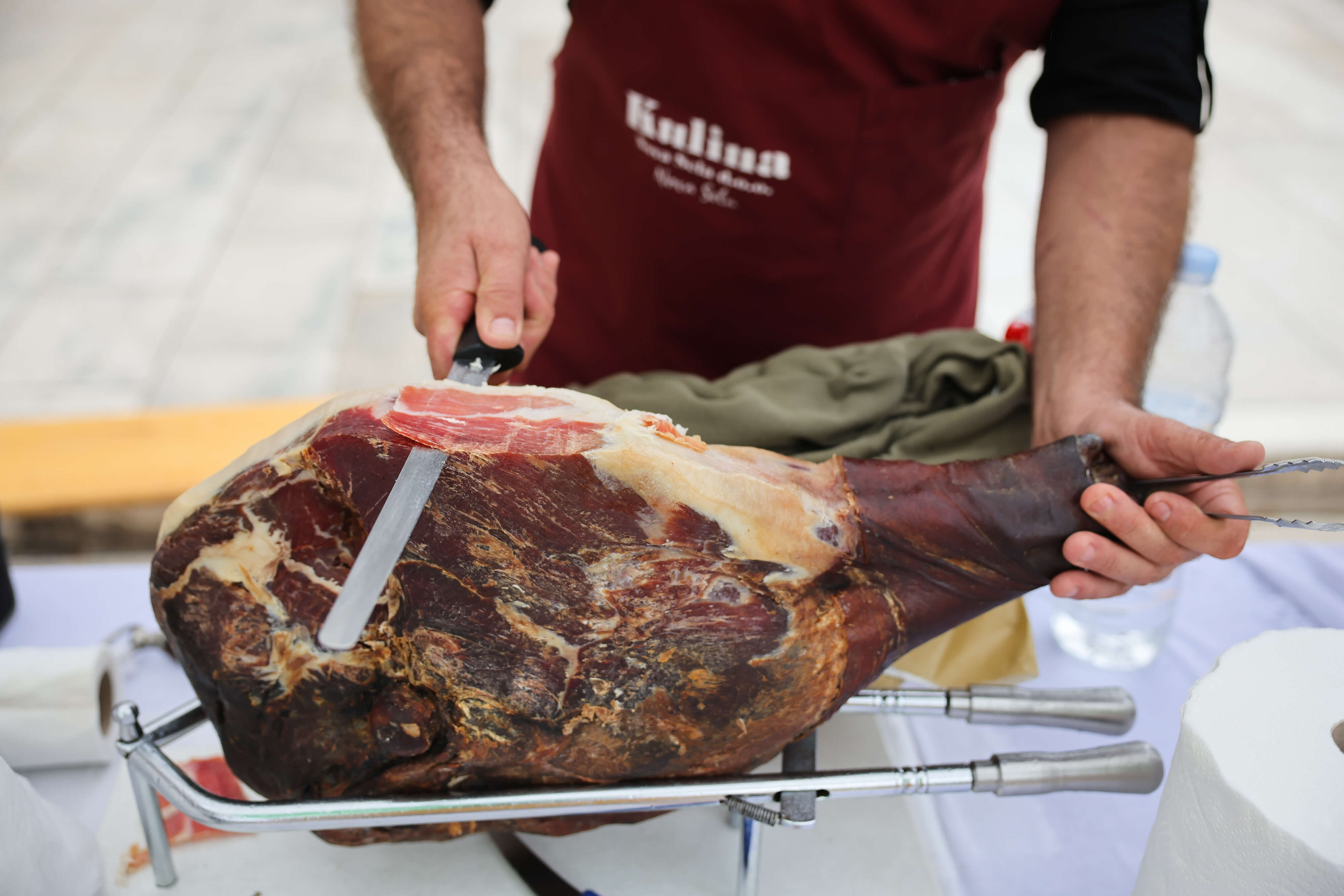
Filip Brala (archive 2020.)
The Days of Croatian Prosciutto have been promoting one of the most sought-after Croatian delicacies for seven years, confirmed by the figures. Namely, on the domestic market, we eat twice as much prosciutto per year as we produce. The ratio is 450 thousand to one million pieces, while we import more than 400 thousand pieces.
Although we ate slightly less prosciutto during the pandemic, producers say that sales have fallen by an average of thirty percent, the potential for production growth is huge. By easing epidemiological measures, everything could go back to normal. However, while the participants and visitors of the Croatian Prosciutto Day are still in force, they will have to adhere to them, according to the Croatian Prosciutto Cluster, the organizer of the event.
This year's event is held under the auspices of Zoran Milanovic, President of the Republic of Croatia, Ministry of Agriculture, Ministry of Tourism and Sports, Croatian Chamber of Commerce, Istria County, City of Porec, Tourist Board of Porec, and the City of Zagreb.
For more, follow Made in Croatia.
To find out more about Poreč, CLICK HERE.
Six of the Best! Croatian Protected Produce On Sale in China
September 18, 2020 – Six items of Croatian protected produce are among the 100 European items to go on sale in China
Six items of Croatian protected produce are among the 100 European items to go on sale in China. In a reciprocal deal, 100 Chinese products will also be recognised and recommended on the European market.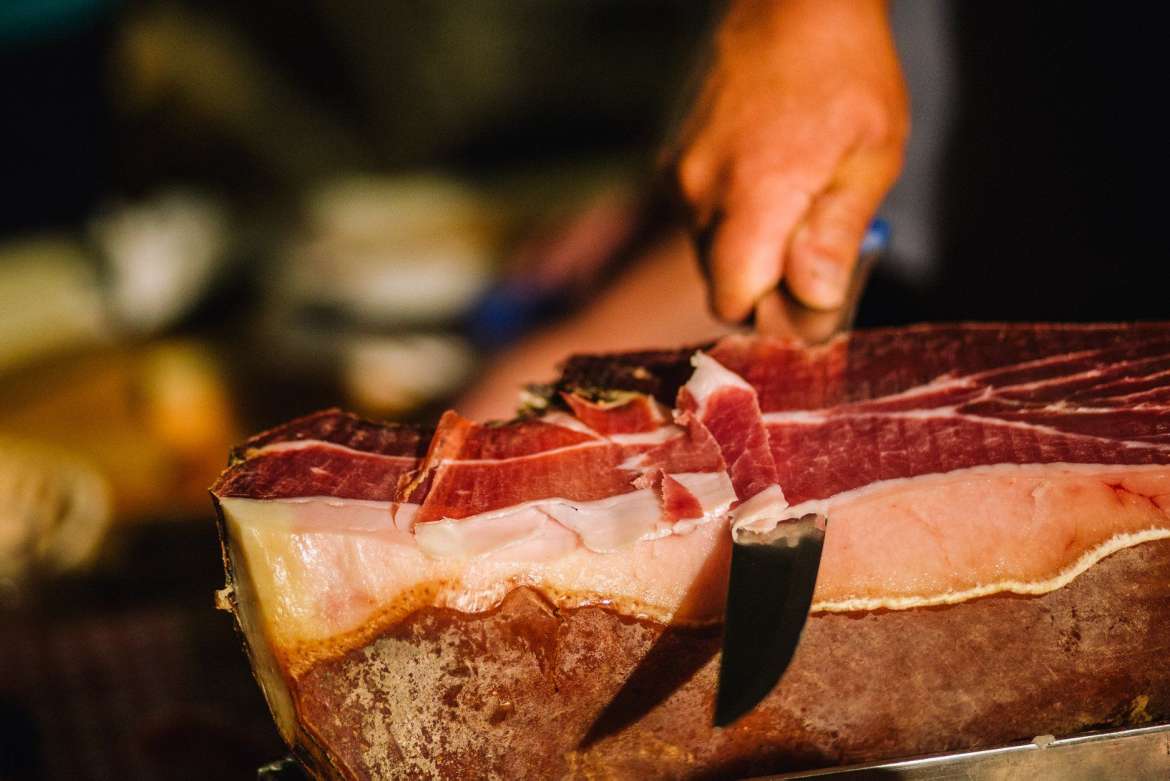 Dalmatian prosciutto © TZ Vrgorac
Dalmatian prosciutto © TZ Vrgorac
Baranja kulen, Dalmatian prosciutto, Drniš prosciutto, Lika potatoes, Dingač wine and Neretva mandarins are the premium six Croatian protected produce chosen to be among the European 100. All of the Croatian protected produce is already recognised at a national and at an EU-level and designated its status based on its unique place of origin.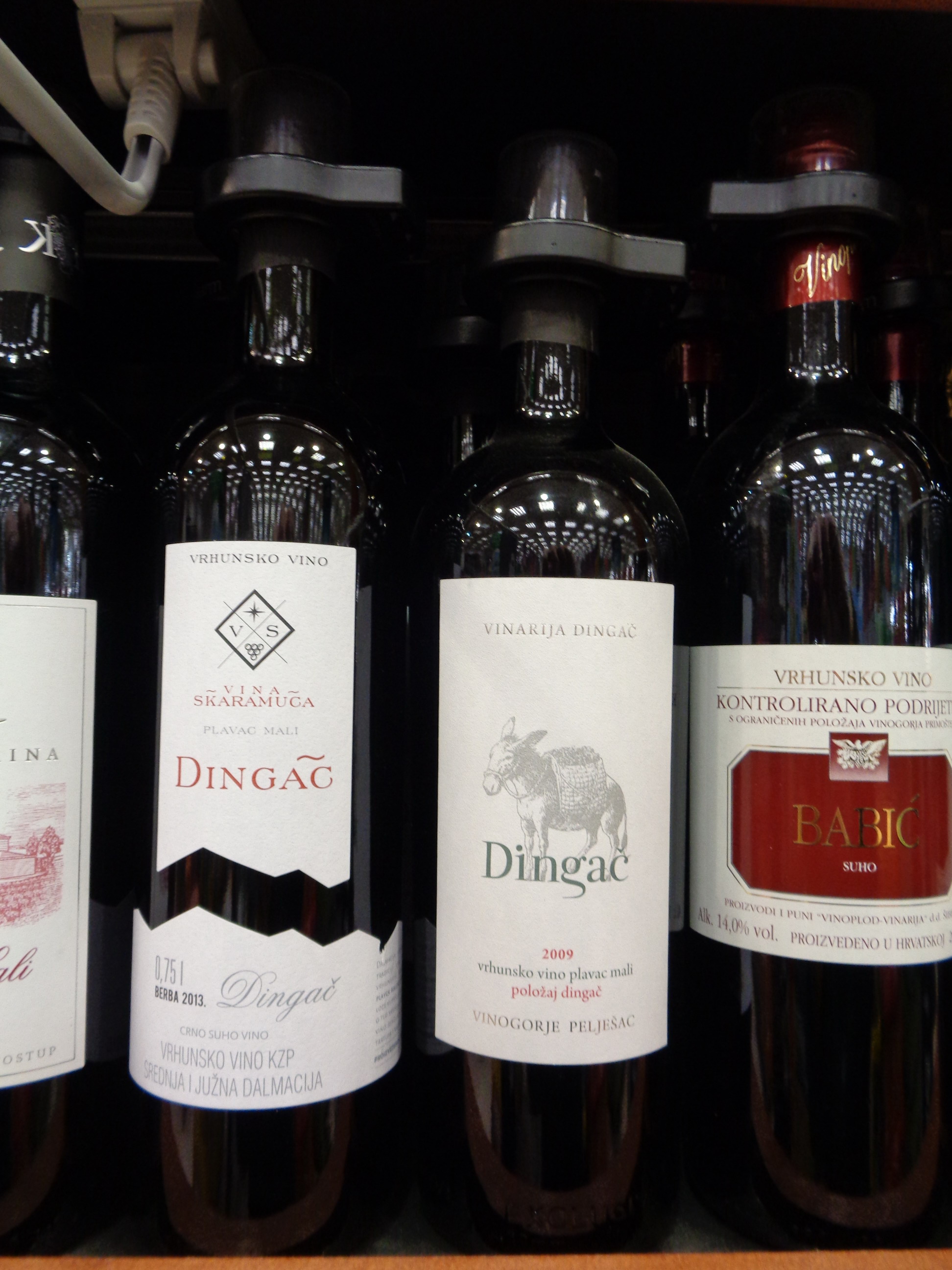 Dingač wine © Silverije
Dingač wine © Silverije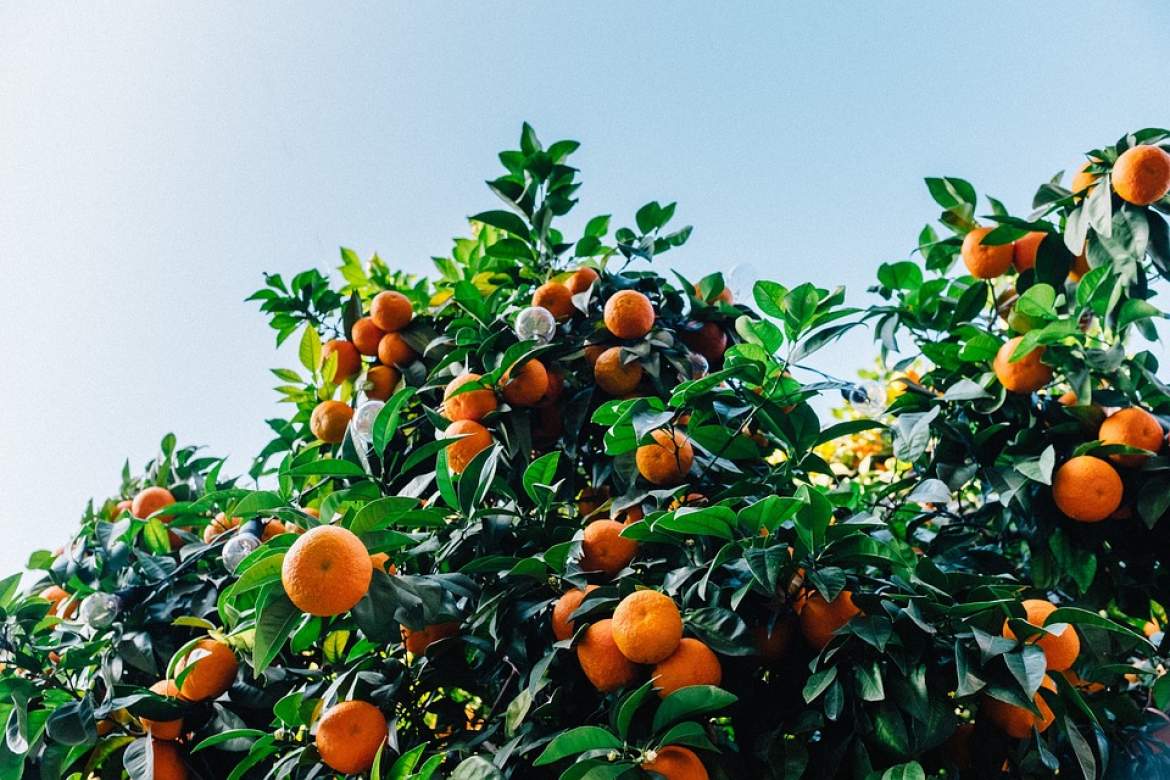 Neretva Mandarins
Neretva Mandarins
The European products will be specially marked and receive special privileges when they go on sale in China. Alongside the Croatian protected produce, other items on the European list are French champagne, Greek feta cheese, Italian Parma prosciutto, Italian mozzarella, Irish whiskey and Portuguese port. On the Chinese list of products are distinct varieties of rice, bean and vegetable products, some of which will already be popular with Europeans who eat or cook Chinese cuisine.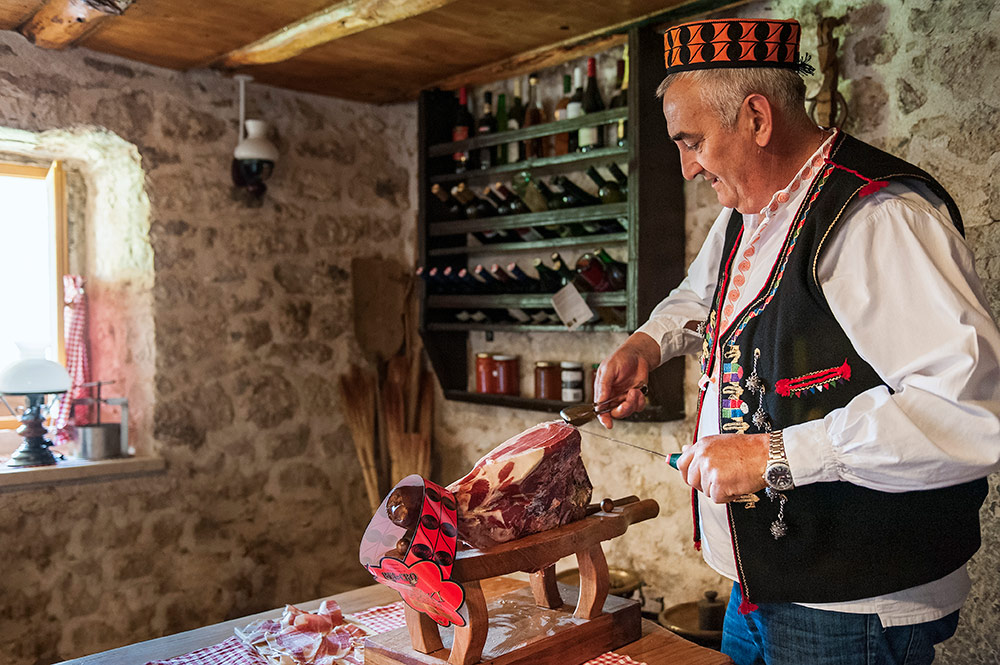 Drniš prosciutto © Tourist Board of Drniš
Drniš prosciutto © Tourist Board of Drniš
The full list of Croatian produce protected at an EU-level currently includes Istrian olive oil, Dalmatian prosciutto, Pag cheese, Lika lamb, Poljički Soparnik, Zagorje turkey, Korčula olive oil, Istrian prosciutto, Sour cabbage from Ogulin, Neretva mandarins, Slavonian honey, Drniš prosciutto, Cres olive oil, Pag salt, Baranja kulen, Bjelovarski kvargl, Varaždin cabbage, Pag lamb, Šolta olive oil, Meso 'z tiblice, Zagorje mlinci, Krk prosciutto, Lika potatoes, Slavonian kulen, Krk olive oil.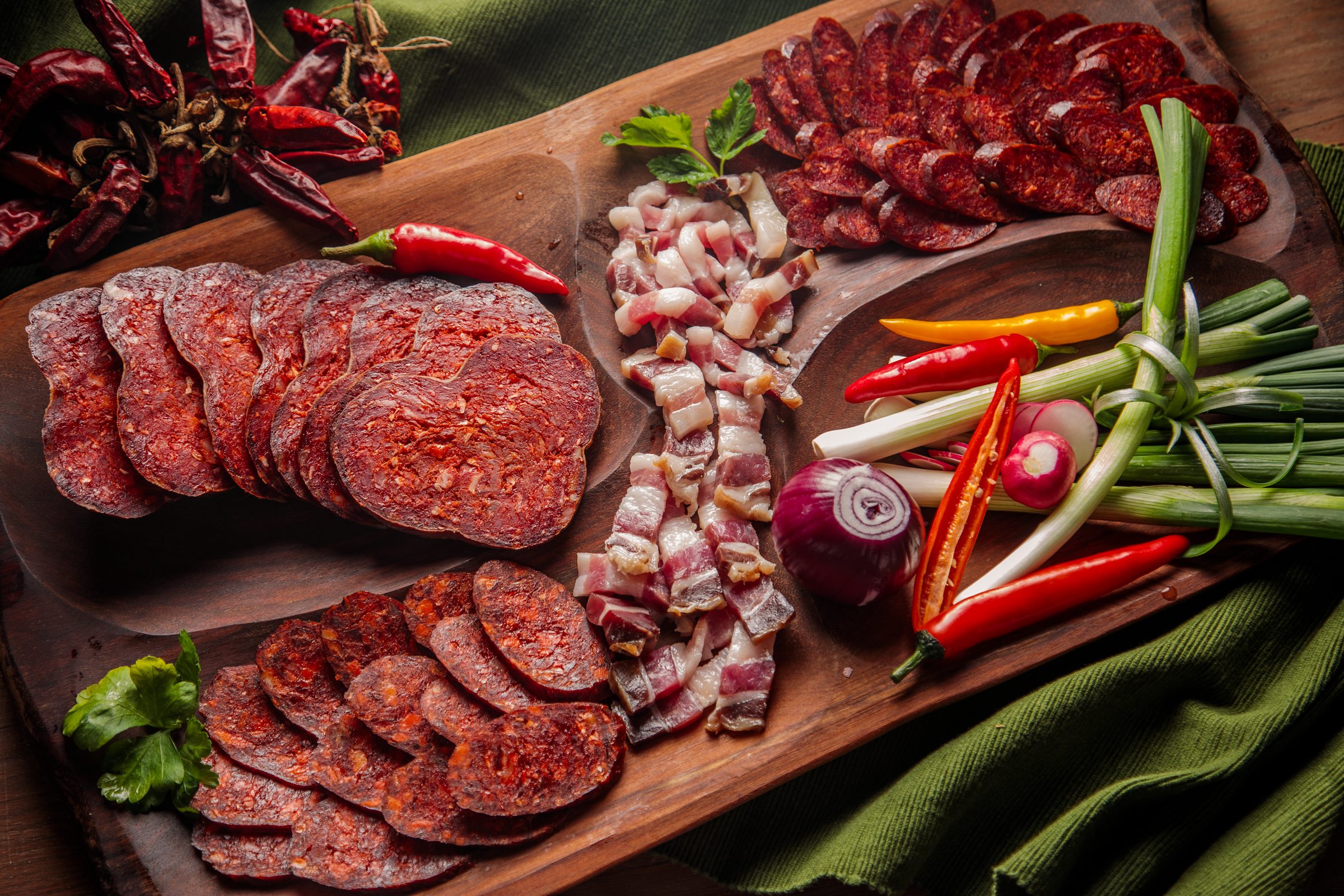 Baranja kulen, featured within a traditional Slavonian platter © Romulić & Stojčić
Baranja kulen, featured within a traditional Slavonian platter © Romulić & Stojčić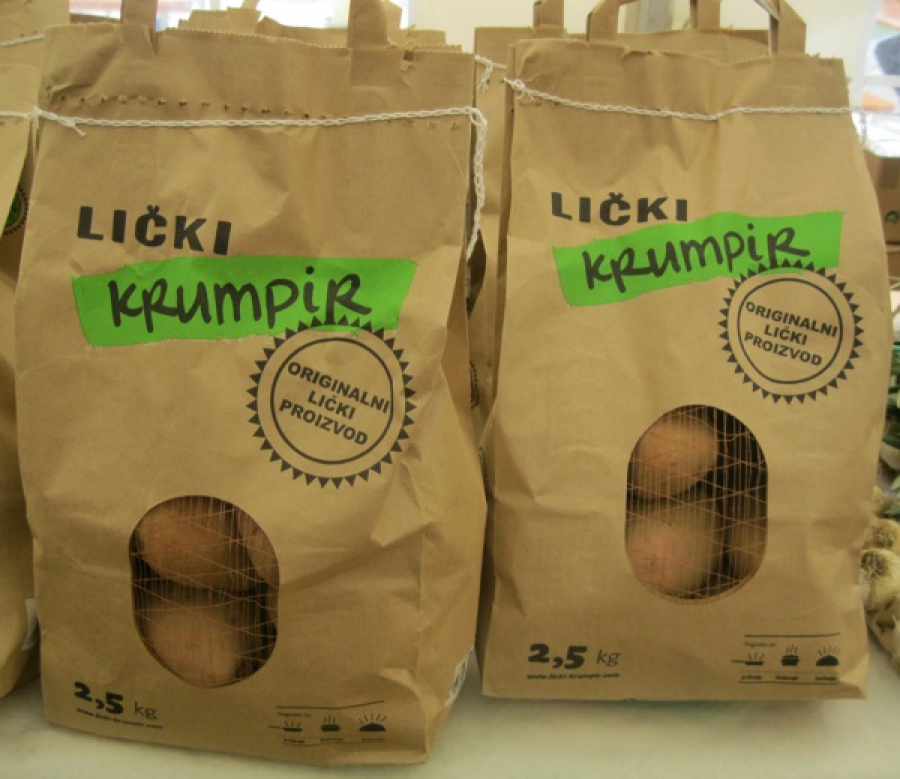 Lika Potatoes
Lika Potatoes
For the latest travel info, bookmark our main travel info article, which is updated daily.
Read the Croatian Travel Update in your language - now available in 24 languages
Pivac Group Opens Largest, Most Modern Prosciutto Factory in Croatia
As Novac writes on the 26th of May, 2020, Prime Minister Andrej Plenkovic, Minister of Agriculture Marija Vuckovic, MP Branko Bacic, Split-Dalmatia County Prefect Blazenko Boban and Vrgorac Mayor Ante Pranic recently visited the newly built meat production factory belonging to the Pivac Group in the Ravca business zone, which is located close to Vrgorac.
After visiting the Pivac Group's new factory, a meeting was held with Ivica Pivac, President of the management board of Braca Pivac, as well as Neven Pivac and Miljenko Pivac, who serve as members of the management board of the same company.
"I'd like to thank Mr. Ivica Pivac who presented this new factory, the largest prosciutto factory in this part of Europe. This marks a great investment near Vrgorac and one of the ways in which the Pivac Group, which operates in both Karlovac and Cakovec is securing jobs here in the Dalmatian hinterland. It employs almost 4,500 people and this also includes the latest investment in Kras in Zagreb. I'm glad that this production was done in a way that reflects the technology of prosciutto production in this part of Croatia and in the way it's very well recognised and appreciated by many consumers.
I'd like to congratulate them on this and I'm glad that they have excellent cooperation with the Ministry of Agriculture, and we heard today their plans for additional plants that will be built here. I'm sure that we'll find a way for such projects to receive support both at the national level and through European Union funds,'' said Andrej Plenkovic.
For years, the Pivac Group has firmly held onto its enviable position as the leader in the production of prosciutto on the Croatian market. A huge investment worth more than 120 million kuna in the construction of this newly opened modern prosciutto factory covering a 10,500 square metre area with a total capacity of 4,500 tonnes will push it even further forward, expanding Dalmatia's prosciutto production capacity along with it.
"The capacity of the new prosciutto factory, the largest not only in Croatia but also in the whole of Southeast Europe, is over 300,000 pieces of prosciutto and 2,500 tons of pancetta. In addition to increasing our production capacities, the new prosciutto factory will enable the Pivac Group to better position itself on the market, and in the long run, it will see it take a more significant step towards the European market,'' said Ivica Pivac.
"Since Dalmatian prosciutto is protected by a geographical indication (GI), it was crucial to preserve the traditional production conditions that are its most important characteristic. This means that all of the key elements of its production remain unchanged - salting it with sea salt obtained from Croatian salt pans, drying it in the Dalmatian bura wind and so on. It is precisely the traditional production conditions that guarantee the retention of the maximum taste and the aromatic properties of Dalmatian prosciutto ", explained the production director, Darko Markotic.
The production process will be carried out according to the highest standards, according to the specification of the protection of geographical indications and also in full accordance with the international standards of food quality and safety.
With the construction of the new prosciutto factory, the Pivac Group has completed the investment cycle that began with the project of expanding cooperation with Croatian pig breeders and investing in primary slaughterhouse processing, ie the expansion and modernisation of the slaughterhouse in Cakovec.
"These projects have enabled the maximum use of domestic raw materials in the Pivac Group as a whole, which, in addition to the entire range, also refers to the production of Dalmatian prosciutto and other durable cured meat products. By continuing to invest in production capacities and maximise the use of Croatian raw materials, we'll continue to strive to work for the benefit of the domestic economy and for rural development,'' said Ivica Pivac.
For more, follow Made in Croatia.


